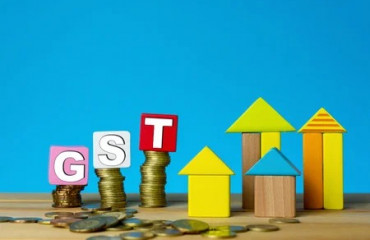
The Goods and Services Tax (GST) authorities have sent notices to a bunch of foreign companies such as Facebook, Google, Netflix and Spotify, to ensure compliance with new GST regualtions, Business Standard reported.
The Goods and Services Tax (GST) authorities have sent notices to a bunch of foreign companies such as Facebook, Google, Netflix and Spotify, to ensure compliance with new GST regualtions, Business Standard reported.
These notices were sent to around 70 digital companies including advertising firms, edtech and online gaming firms in line with requirements for 18 percent Integrated GST (IGST). The new tax is effective as of October 1, irrespective of whether the services are for personal or business use, it said.
Also Read: Delta Corp gets another GST shortfall notice of ₹6,384 crore
With these changes, the government expects to collect around ₹2,000 crore in the current financial year (FY2023-24), a significant rise from the approximately ₹700 crore collected in the previous financial year (FY2022-23) from foreign firms providing various digital services in India, a government official told the paper.
Previously, only business-to-business services were subject to IGST, and there was no tax obligation for individuals and government entities acquiring non-business services from overseas Online Information Database Access and Retrieval (OIDAR) service providers outside of Indian jurisdiction.
Firms under scanner for compliance
The official further said that they are keeping a close eye on companies that have been evading GST.
Also Read: GST on water takes a political twist
While most major players in the subscription model have followed the rules, there are exceptions in certain revenue streams. However, many mid- to small-sized players have not yet registered for tax purposes, they added. The official also emphasised the importance of paying taxes and filing returns under the OIDAR provisions.
According to the same official, online gaming and advertising firms, along with smaller subscription-based players, are among the significant defaulters. The introduction of these new norms is aimed at ensuring compliance when overseas entities offer services to the Indian user base.
How it works
Overseas suppliers delivering services to Indian consumers must now undergo a simplified registration process under the GST law, either directly or through representatives in India, to ensure tax compliance, the r.
Also Read: LIC gets GST notice for paying taxes at lower rate. Details here
This involves paying an 18 percent IGST on a forward charge basis, where the service provider is responsible for collecting tax from the recipient and remitting it to the government.
In the Union Budget 2023, the central government expanded the scope of OIDAR services, eliminating previous exemptions and removing the term "minimal human intervention."
Additionally, Section 16 of the IGST Act broadened the definition of a "non-taxable online recipient" to include non-registered recipients, thereby shifting the tax collection burden to service providers.
Tax officials anticipate that these new norms will also guarantee compliance for various revenue streams from services that were previously not covered.
What is OIDAR?
OIDAR encompasses various services, including advertising, Cloud services, e-books, movies, music, software, data and information retrieval services, data storage, and online gaming services, all delivered through online and internet platforms.
Track our Cost of Living LIVE coverage here
Foreign OIDAR service providers, including over-the-top platforms and social media companies, derive significant revenue from their Indian customer base, experts told BS. Notably, online education services, gaming, and advertising, which were previously considered outside the scope of OIDAR services, now fall under the amended definition.
OIDAR service providers are advised to carefully analyze the impact of these changes. While the livestreaming of events and classes may continue to be exempt, providing access to libraries or recorded videos will now be subject to GST.
